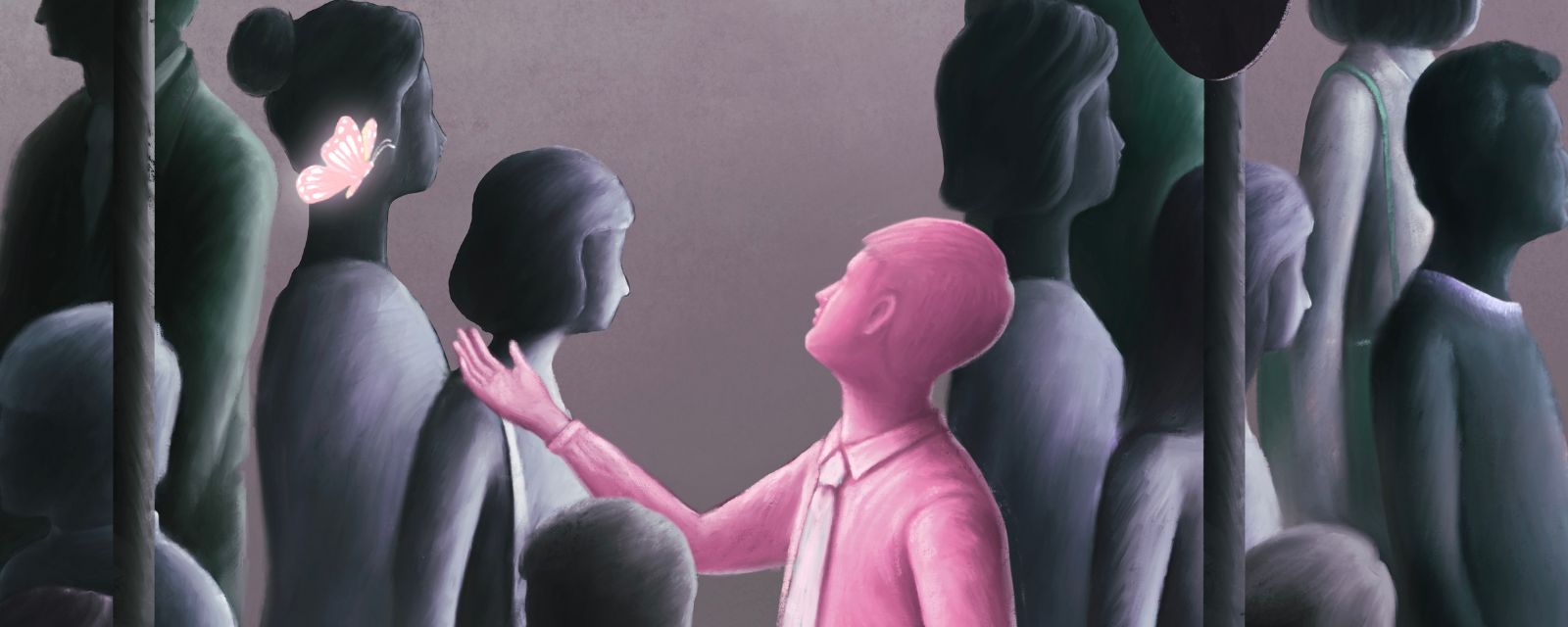Radically Accepting a 2-Year Pandemic
Suffice it to say, two years ago none of us expected the world to look how it does now. We’ve grown weary, worn, even hopeless at times as we continue to wake up to a world that continues to live in the “new normal”. While trying to continue persisting and holding our breaths until the next signs of our old lives returning, we are still marked with grief around all that we have lost in this last year - graduations, weddings, social connection, our health, and even loved ones who’ve passed. The pandemic has left us in a state of living either in the past with what we’ve lost or in the future with what we don’t have now. With that being said, it can be hard to sell the idea of being present when the present seems so dismal.
In times of distress, Dr. Marsha Linehan, the creator of Dialectical Behavior Therapy (DBT), suggests that we have four options:
- Solve the problem
- Change your perspective on the problem
- Radically accept the problem
- Stay miserable
For us individuals, we don’t necessarily have access to brilliant scientific solutions to eradicate a virus, which puts a damper on option 1. When it comes to option 2, it is possible to find new meanings in the pandemic (i.e. an opportunity to take on new skills, positive aspects of remote work, not having to commute in the lake effect snow), but this can also feel exhausting over time and with the more negativity we see. As for option 4, staying miserable might be an easy solution and it will also have the least rewards by far.
This brings us back to the third option: radically accept the problem. At first glance, dear reader, you might balk at the idea. Accept the pandemic? Isn’t that what I’ve been doing for the past two years by resigning myself to daily zoom meetings and masks constantly fogging up my glasses? It’s a reasonable response if you’re unfamiliar with the “radical” side of acceptance. However, radical acceptance goes deeper than acknowledging circumstances. Radical acceptance is about wholeheartedly accepting your reality, your power in the moment, and your feelings - good and bad.
What is radical acceptance?
One way to start understanding the concept of radical acceptance is by breaking it down further. “Radical” is a word that comes to us originally from the Latin radix, meaning “root”. When we talk about radical acceptance, it means really accepting things at their root - accepting them totally and completely. It’s moving past resistant thinking, such as:
“Why is this happening to me?”
“This isn’t fair.”
“I can’t believe this.”
“This is the worst thing that could happen.”
“People shouldn’t act like that.”
Thoughts that try to resist what is happening or try to linger on what should or shouldn’t have happened cloud our ability to process our emotions more effectively. Instead of trying to rationalize, avoid, or get caught up in “what if” thinking, radical acceptance encourages us to observe what is happening non-judgmentally. This includes observing the present moment, our present environment, and our present feelings. Consider the reality that you currently face: Events over the course of history have led to where each of us are right now. We cannot change our pasts, and to dwell over the past is to create more suffering in the present. None of us can change what we have experienced in these past two years, nor what we haven’t experienced.
One of the most difficult aspects of radical acceptance is being nonjudgmental towards ourselves. This is where “what if” thinking can spiral out of control easily. In moments of distress, we always have the option to accept where we are feeling. Taking an objective look at ourselves in the moment helps us name our feelings and approach without judgment or criticism. Some practitioners even note that addressing yourself in the second or third person can help as well. This could look like:
“You didn’t sleep last night. You feel exhausted right now.”
“You’re afraid that you may get sick.”
“John is disappointed and sad because plans were canceled again.”
What isn’t radical acceptance?
Acceptance does not mean that you agree with what is going on. Oftentimes, we can conflate the two concepts, but it’s critical to note that accepting a reality does not mean you have to approve of it. Acceptance means understanding that something is what’s happening and that it cannot be changed. Sometimes, acceptance means accepting that a situation feels awful. You do not have to condone the reality you are experiencing.
Radical acceptance is not easy. Like many mindful skills, it requires a lot of practice to get in the habit of accepting the moment. It’s normal to experience resistances and to want to distract yourself from what you’re experiencing.
It’s also important to note that radical acceptance may not be helpful in every single situation. When it comes to coping with a pandemic, accepting what we cannot change is important. However, do not let the misunderstanding of radical acceptance cause you to accept things that can be changed. Radical acceptance should not be applied to situations where you are avoiding taking action, where you may be in danger (physically, emotionally, financially, etc.), nor where you have not taken time to consider what other options might be available.
Practicing acceptance
Radical acceptance can take on many forms, and it could look vastly different from person to person. If you’re looking for a place to start, however, here are some ways to practice:
Write down or verbalize your thoughts and feelings when you are distressed.
Reflect on your immediate reactions and then re-state them as if you were describing your thoughts in a third-person novel.
Do a body scan.
Notice where you might be holding feelings in your body.
Remind yourself when there are things you can’t change.
State what cannot be changed nonjudgmentally.
Meditation
Utilize guided meditations to “visualize” what you are thinking and allow feelings to come and go.
Practice “opposite action” skills.
Consider what you would be doing if you accepted your situation, and then commit yourself to taking that action.
Acknowledge complexities in situations
Challenge beliefs that a situation is entirely “good” or “bad”.
Utilize mantras or other coping statements.
Repeat them to yourself, write them down, or use them as a phrase to focus your meditations.
Discuss radical acceptance with your therapist.
Collaborate together on new ways to practice acceptance in daily life.
Learn More
In times like these where so much is out of our control, it’s important to learn to sit with that acceptance. We may not be sure how this next year will go for all of us. By utilizing radical acceptance, we can at the very least center ourselves to take on our situation one moment at a time. If you would like to read more about what radical acceptance might look like for you, checkout any of the resources below.
All material provided on this website is for informational purposes only. Direct consultation of a qualified provider should be sought for any specific questions or problems. Use of this website in no way constitutes professional service or advice.




